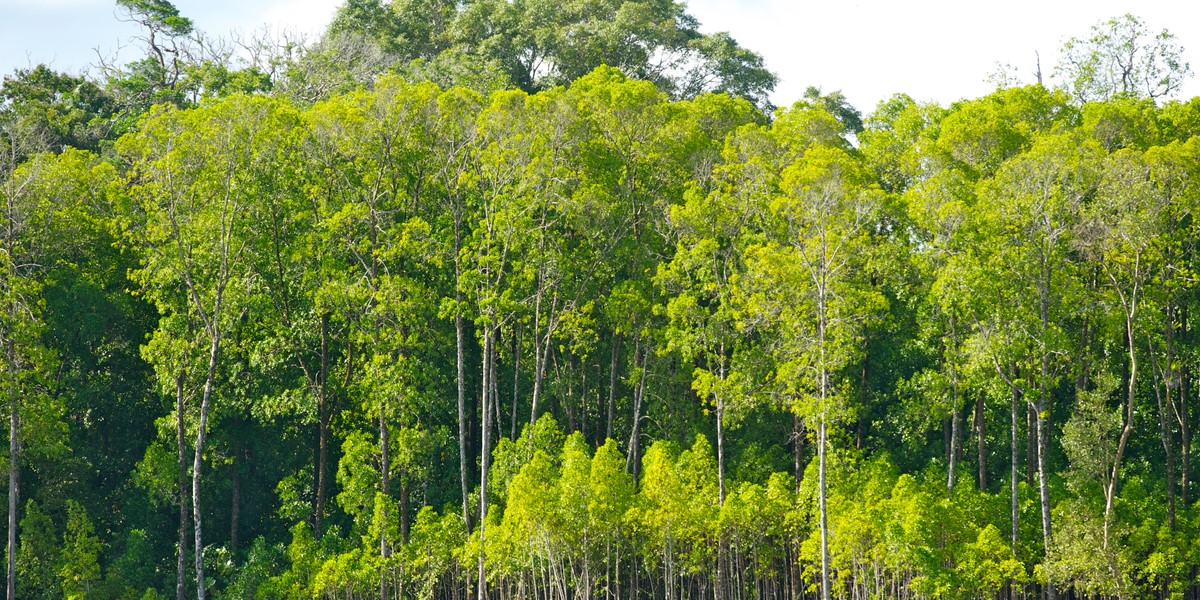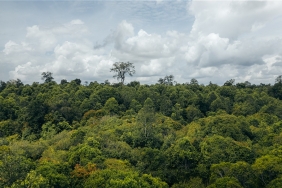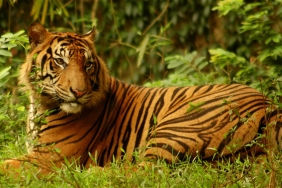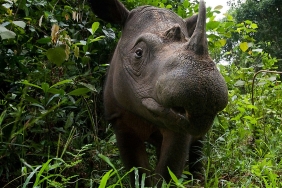WWF-PEMKAB PANDEGLANG SYNERGY FOR SUSTAINABLE DEVELOPMENT
By: Masayu Yulien Vinanda
Pandeglang (18/10)-WWF-Indonesia's conservation work in Ujung Kulon National Park (TNUK) and its surroundings that began 49 years ago has resulted in a special gift. The collaboration between WWF-Indonesia and the Pandeglang Regency Government in managing the Ujung Kulon buffer zone was confirmed in a Memorandum of Understanding (MoU). WWF-Indonesia Conservation Director Nazir Foead and Pandeglang Regent Erwan Kurtubi, representing the two agencies, signed the agreement at Pendopo, Pandeglang Regent's office, on Tuesday (18/10).
Since starting operations in Ujung Kulon in 1962, the first project WWF-Indonesia developed was Javan rhino conservation. In partnership with the Forestry Department, WWF-Indonesia developed anti-poaching patrol efforts. Not only that, WWF also conducts rhino research and develops community empowerment programs to improve the social and economic development of communities around the area.
"This MOU marks the emergence of a new 'chain of evolution' in WWF's work in Ujung Kulon, which seeks to achieve conservation goals by working more integrally at the district level, not just focused on the area where Javan rhinos live. We dream of mobilizing all development components in Pandeglang Regency to support Javan rhino conservation in Ujung Kulon, while demonstrating the economic and ecological benefits of Ujung Kulon," said WWF-Indonesia Conservation Director Nazir Foead.
He further added that Ujung Kulon is the pearl of Indonesian conservation, even the barometer of conservation in Indonesia. According to him, if conservation efforts in Ujung Kulon are able to produce various success stories, it will further strengthen Indonesia's conservation targets and commitments internationally.
Meanwhile, the Regent of Pandeglang in his speech said that the existence of Ujung Kulon National Park in the administrative area of Pandeglang Regency is a potential that can be optimized to improve the welfare of the population around the area and in Pandeglang Regency. For example, the agricultural potential of the community, the uniqueness of local culture, the existence of community forests that are starting to develop, widespread animal husbandry, water and marine potential, and the existence of Regional Marine Conservation Areas (KKLD) Badul Island and Cigorondong KKLD. Not only that, the potential for tourism such as Umang Resort, which has successfully built an economic development corridor in the buffer zone, also contributes to adding to the long list of TNUK's potential.
"It is my hope that the collaboration between the Pandeglang Government and WWF-Indonesia in the collaborative management of the Ujung Kulon buffer zone will be able to improve the quality and quantity of sustainable development in Pandeglang district," he concluded.





